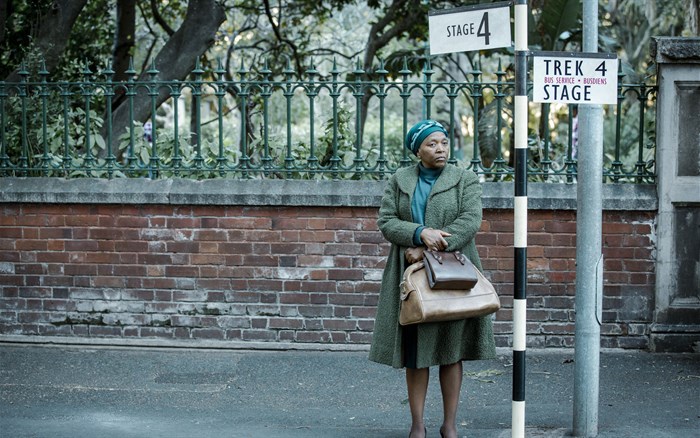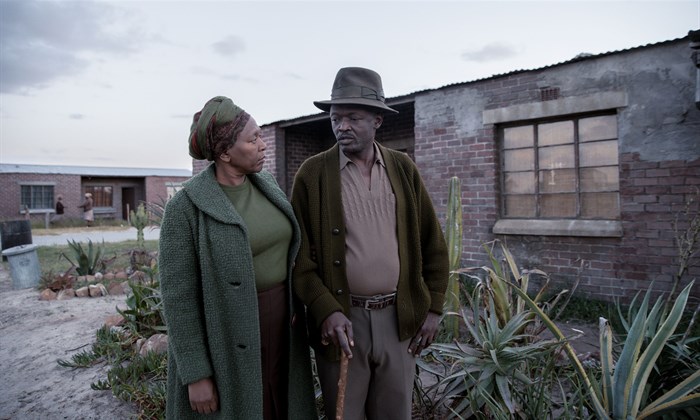
Top stories





Marketing & MediaWarner Bros. was “nice to have” but not at any price, says Netflix
Karabo Ledwaba 1 day

More news

Logistics & Transport
Maersk reroutes sailings around Africa amid Red Sea constraints
















Born in Cape Town, South Africa. Christiaan Olwagen studied drama at the University of Stellenbosch, specialising in theatre directing under the mentorship of Marthinus Basson. Theatrical highlights include Albee’s Who’s Afraid of Virginia Woolf?, Chekhov’s The Seagull, Ibsen’s A Doll’s House and Lorca’s House of Bernarda Alba.

Olwagen’s film debut was in 2013 at the Silwerskerm Festival in Cape Town, with the short film “Toevlug”. The short won Best Director, Screenplay and Best Short Film. His feature film debut was in 2016 with Johnny is Nie Dood Nie. It won Best Actor, Supporting Actress, Supporting Actor, Screenplay, Art Direction, Music, Best Director and Best Film at the Silwerskerm Festival.
It has been described by South African critics as a landmark in Afrikaans cinema. This was followed by the astonishing Kanarie, about a young gay army recruit who joins the South African Defence Force Army Choir at the height of apartheid, and the Afrikaans adaptation of Chekhov’s The Seagull transposed to a contemporary South African setting.
I often don’t look for the projects that I end up doing, they somehow find me and Poppie followed a similar trajectory. I was approached by Helena Spring and Karen Meiring with a phone call and a draft. They asked me to read the script and see whether I’d be interested in coming on board. I wanted to get to know the source material first and I knew of the book but had never gotten around to reading it.
Die Swerfjare van Poppie Nongena happened to be one of the novels I filched from my mother’s library, now sitting in my own stockpile, part of a plethora of promise-to-reads gathering dust. I grabbed it off the shelf, decided there and then that it was as good an excuse as any and dove in. I devoured it in one sitting – completely blown away.
Without a doubt, a political piece but told through a very personal prism. Its unique stance on the student riots, wholly viewed from the perspective of a concerned parent, was something I hadn’t read or seen. It was very much the story of a mother’s struggle and I fell in love with the eponymous heroine. After re-reading the last page several times, I phoned Helena in tears: “When do we start?”
Growing up, my single mother was working three jobs to get by and so my upbringing was entrusted to a strong-willed, god-fearing Ndebele woman who had claimed my care with such tenacity I could easily have been one of her own. Although I was raised without a father, I had the privilege of having two mothers instead. Under one roof, these women determined the type of man I am today.
The one gave me a life, the other gave me love and together they gave me a home. When I read the novel, I saw my other mother, on every page, in every prayer, scold, heartache and defiant gaze.
Any reluctance to get on board was swept away when Poppie became my personal love-letter to her and all the other mothers of South Africa.

We knew from the get-go trying to tell the whole story in a single film was going to be a near-impossible task. After meeting the novelist, Elsa Joubert, and getting her permission to take what we need and discard what we don’t, the screenwriter, Saartjie Botha, and I took a page from Virginia Woolf’s Mrs Dalloway – through the prism of a singular timespan, we can comprehend an entire lifetime. We decided to tell the tale from the perspective of the final year in the novel, the most political and tragic year in Poppie’s life.
Visually, my cinematographer, Vicci Turpin, and I were torn between sweeping epic and kitchen-sink realism. Although the film is set in the 1970s, we wanted it to be a look into the past from the standpoint of the present. We went to the Italian Neo-Realists for inspiration – particularly Vittoria Di Sica’s Bicycle Thieves and the contemporary naturalists, the Dardenne Brothers.

We wanted the film to be a hybrid between a documentary, the cinema of the Italian Neo-Realism and Baroque painting. Vicci achieved the “look” with an emphasis on natural light and the “feel” with an easy rig, specially designed for the film, giving us the hand-held, eye-level sense of a war documentary but with the precision and control of “Steadicam” – allowing us to shoot uninterrupted sequences of up to eight minutes.
Although the feeling of the film is visceral, we aimed to juxtapose the political and emotional upheavals with the tragic beauty of a Biblical Baroque painting. The depictions of domesticity by Dutch painter Johannes Vermeer, who painted milk maids with the same reverence as the Madonna, greatly influenced the visual poetry of the film.
Coming from a theatrical background I’ve always believed that performance takes precedent. To me, rehearsals are key and the performers are my most important collaborators. I’ve grown fond of long uninterrupted takes because they highlight the performance and give the audience a sense of “real-time”.
With this project, I, particularly, wanted to highlight the aspect of time because it ties into every theme in the film – being a prisoner of time, the ticking time-bomb that is Poppie’s passbook and the “time’s up!” aggression and urgency of the student movement.

Clementine Mosimane. A force of nature. She ran the whole gamut of human emotions, A to Z, in one film. She’s not only an exceptional actress but an incredible human being. Whereas the script gave the lead character its bones, she was the beating heart, pumping the blood of her own experiences into Poppie. Ultimately, she was key to bringing the whole film to life.
But, honestly, every single person played such an integral part. From doyenne, novice to non-actor -everyone brought their own unique set of life experiences to the project.
A special mention goes to Chris Gxalaba who played Stone. He doubled-up as Xhosa advisor and, like Poppie’s husband, he was the epitome of support.

It’s concerning that the troubling issues the film deals with haven’t changed at all. Involuntary migration and displacement affect millions daily. Poppie’s story could easily be transposed to a current-day Mexican migrant in the USA, a Syrian refugee in Europe or even an African asylum seeker in South Africa. The film serves as a modern-day reflection in an apartheid-era mirror. It’s a cautionary tale. A global reminder of my country’s not so distant past. And an appeal to learn from our mistakes or be doomed to repeat them.
Read more about South African films and filmmaking.
Poppie Nongena opens in SA cinemas 31 January 2020
